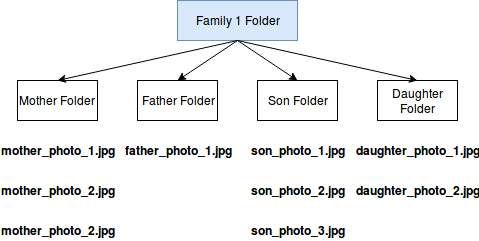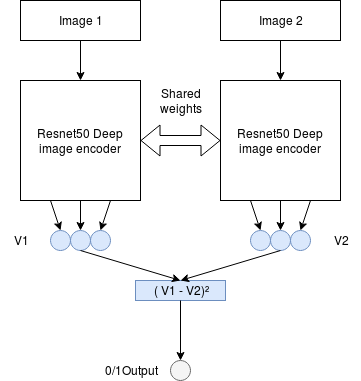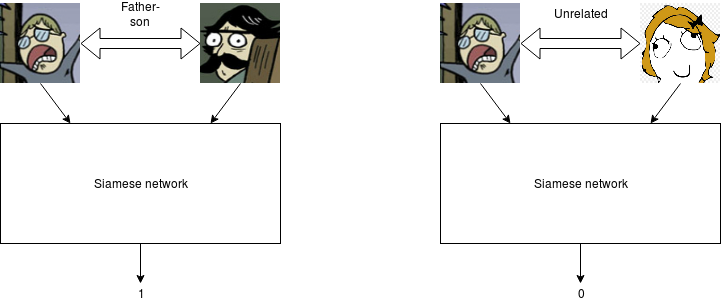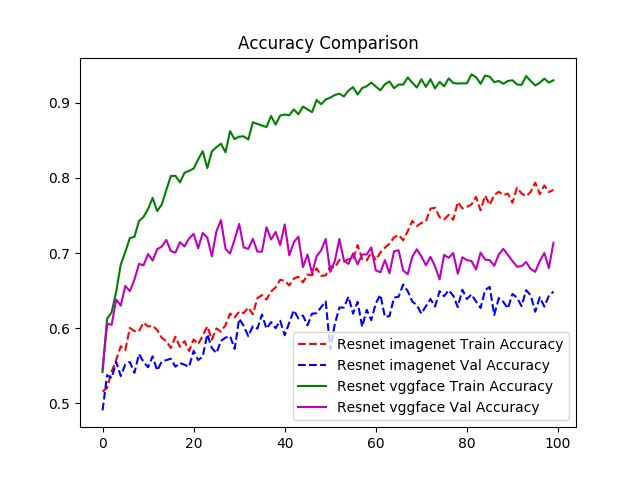Keras 2
keras_vggface
to install keras_vggface => "pip install git+https://github.com/rcmalli/keras-vggface.git"
The data is available at : https://www.kaggle.com/c/recognizing-faces-in-the-wild/data
It needs to be dezipped into the folder input
Can we predict if two people are blood related given just a photo of their face
?
This is what will try to do in this post by using the Families In the
Wild: A Kinship Recognition
Benchmark dataset in the format
shared on Kaggle :
https://www.kaggle.com/c/recognizing-faces-in-the-wild/data
We will explore the effectiveness deep neural networks and transfer learning techniques to train a neural network that will predict if two people are blood related or not given a picture of their face.
We will use the Families in the Wild dataset shared on kaggle. It is the biggest scale data set of its kind where face photos are grouped by person and then people are grouped by family.
Image organization in the FIW dataset
Other than the image folders we also have a file that lists all the cases where two people from a family are blood related, which is not the case for all members of the family. (Like the pair mother-father, unless we are talking about Lannisters 😄 )
In order to solve this task we will use a Siamese network that takes a pair of images and predict 1 if the people in the photos are related and 0 otherwise.
Siamese Network
The image encoder is applied to each input image and encodes each of them into a fixed length vector. The square of the difference between the two image vectors are fed into a fully connected layer which then predicts a binary label of kinship.
Example of input/output
We will base our solution on pretrained image encoders using two different settings :
Pretraining on ImageNet : A data-set of 14 million manually labeled images used for classification into categories like dog, cat, airplane, strawberry …
Pretraining on VGGFACE2 : A data-set of 3.3 million face images and 9000+ identities in a a wide range of different ethnicities, accents, professions and ages.
Pretraining techniques are useful because they allow us to transfer
representations learned on a source task ( here image classification or
regression ) into a target task which is kinship prediction in this case.
This helps reduce over-fitting and achieve a much faster convergence rate,
especially if the source task and target task are somewhat close.
We will use the accuracy and AUC Score to evaluate the results of each model.
Resnet50 Imagenet test ROC AUC : 0.70
Evaluation on the test set through kaggle submission
Resnet50 VGGFACE2 test ROC AUC : 0.81
Evaluation on the test set through kaggle submission
Validation Accuracy Comparison
We can see that even the architecture in the two different settings is the same the results are much better on the model pretrained on VGGFace2 since its a source task that is much closer to the target task of kinship prediction compared to Imagenet.
We showed that we can train a Siamese network to predict if two people are blood related or not. By using transfer learning we were able to achieve encouraging results of 0.81 in AUC ROC, especially given that the task of kinship 👪 prediction is pretty hard even for humans.





